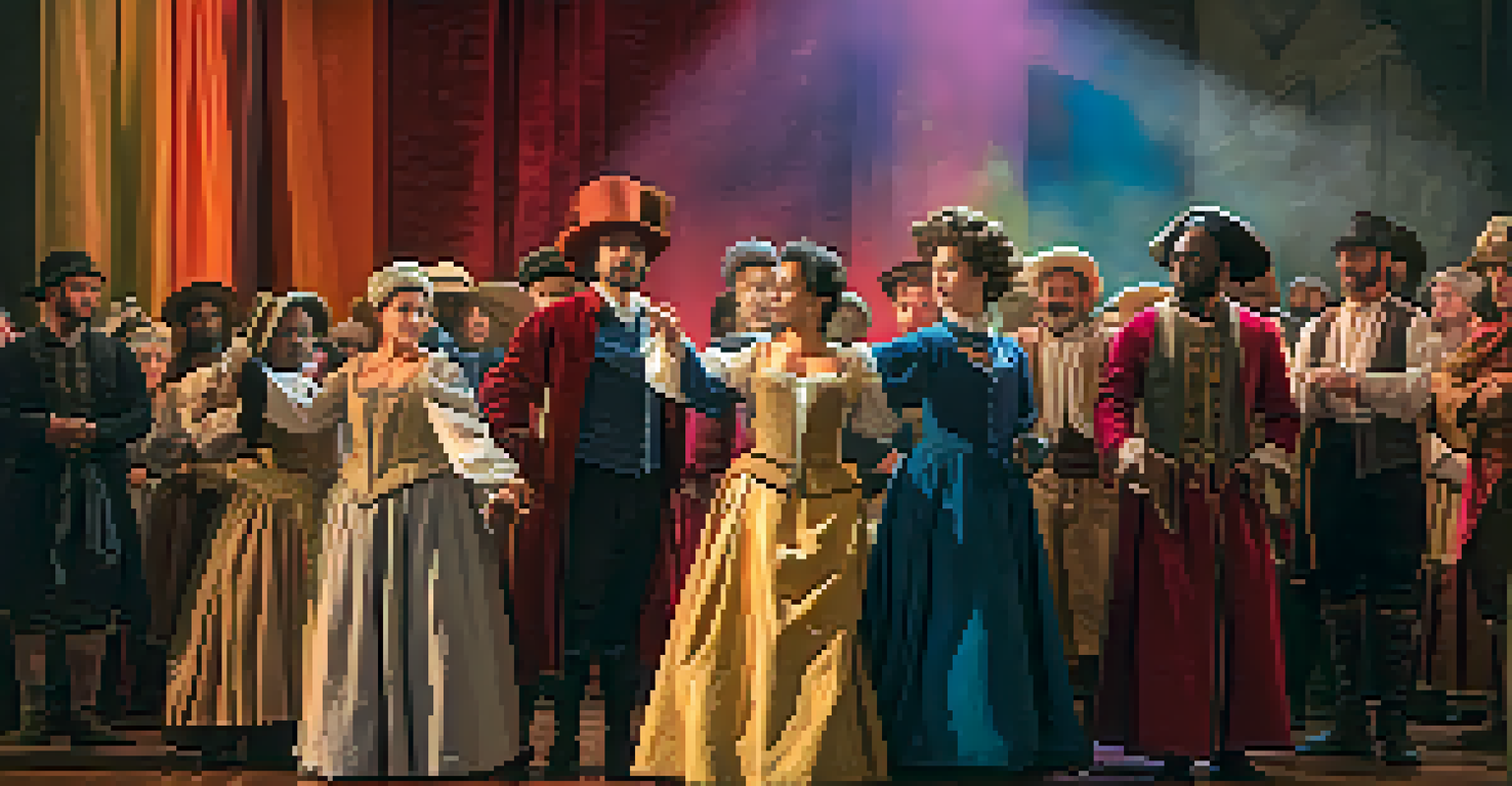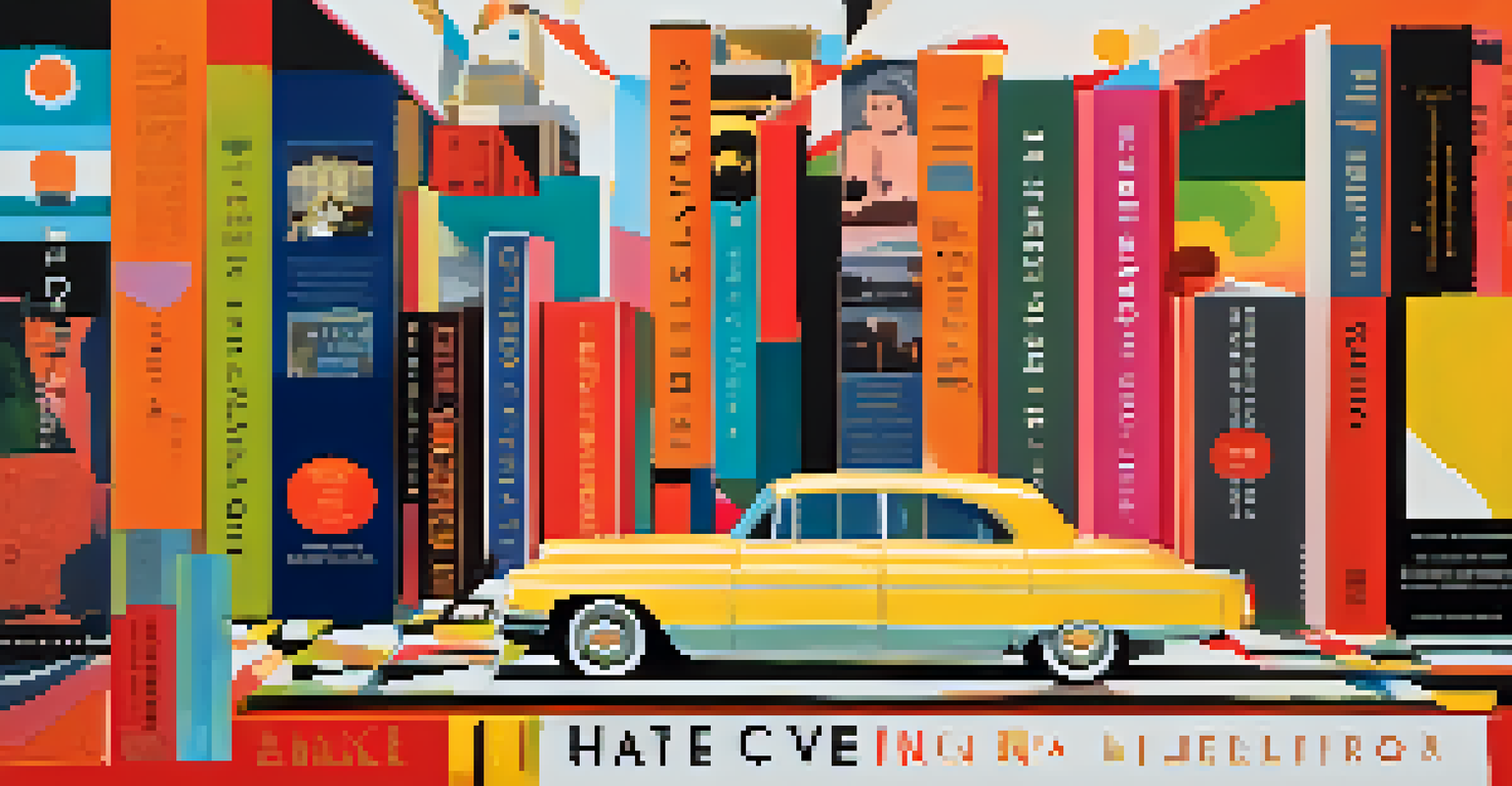Television Adaptations: Hollywood's Take on Classic Literature

The Allure of Adapting Classic Literature for Television
Classic literature has a timeless charm that captivates readers across generations. This allure extends to television, where producers see an opportunity to bring beloved stories to life for new audiences. By adapting these works, they not only pay homage to the original authors but also provide fresh interpretations that resonate today.
Adaptation is a form of interpretation, and every adaptation is an act of reimagining the original text.
Television allows for deeper storytelling compared to films, offering more time to explore complex characters and intricate plots. This medium can dive into the nuances of a novel, showcasing the emotional depth and subtleties that might be lost in a two-hour movie. Consequently, viewers can engage more intimately with the story and its characters.
Moreover, the rise of streaming platforms has made it easier to adapt lengthy works, such as epic novels, into limited series. This shift has opened the door for classic literature to reach broader audiences, inviting viewers who might not pick up a book to experience these narratives through a different lens.
The Impact of Modern Themes on Classic Stories
Adapting classic literature allows creators to infuse modern themes and perspectives into age-old narratives. This can breathe new life into the story, making it relevant for contemporary viewers. For instance, recent adaptations of works like 'Pride and Prejudice' often highlight issues of gender and class in ways that resonate with today's societal discussions.

By reinterpreting characters and their motivations, adaptations can challenge traditional viewpoints, inviting audiences to reconsider their understanding of the text. This approach can provoke thought and spark conversations that extend beyond the screen, bridging the gap between the past and present.
Modern Themes Revitalize Classics
Adapting classic literature allows creators to infuse contemporary themes and perspectives, making these timeless stories relevant for today's audiences.
Furthermore, these adaptations can also address historical inaccuracies or oversights, providing a more inclusive perspective. This means bringing to light voices and experiences that were previously marginalized, enriching the narrative and offering a fuller understanding of the original work.
Challenges of Staying True to the Source Material
Adapting a beloved classic comes with the weighty expectation of staying true to the source material. Fans often have strong attachments to the characters and plotlines, making any changes a potential point of contention. Striking a balance between fidelity to the original and creative liberty is a challenge that many screenwriters face.
The best adaptations are those that expand the original work, opening it up to new interpretations and insights.
Moreover, the nature of television storytelling may necessitate changes that can alter the essence of the original work. For instance, a character's arc might be expanded or condensed, which can lead to mixed reactions from audiences. This tension between maintaining authenticity and crafting engaging television can create a tightrope for creators to walk.
Ultimately, while some purists may resist adaptations that stray from the text, others find value in the reinterpretation. The conversation around these changes can enrich the experience, prompting viewers to revisit the original works and engage with them in new ways.
Notable Television Adaptations Worth Watching
Several television adaptations have successfully captured the spirit of classic literature while introducing innovative storytelling techniques. One standout is the BBC's adaptation of 'War and Peace,' which balances grand visuals with intimate character development, showcasing the emotional turmoil of its characters amid historical events.
Another noteworthy adaptation is HBO's 'The Outsider,' based on Stephen King's novel. This series skillfully blends elements of horror and crime fiction, demonstrating how modern adaptations can draw from classic literature while delivering fresh narratives that appeal to contemporary audiences.
Casting Shapes Character Perception
The choice of actors in adaptations significantly influences how audiences perceive classic characters, offering fresh interpretations that resonate with modern viewers.
These adaptations not only entertain but also encourage viewers to explore the original texts, sparking renewed interest in classic literature. They remind us that stories, no matter how old, can evolve and resonate in new forms, encouraging discussions about their relevance in today's world.
The Role of Casting in Bringing Characters to Life
Casting is a crucial element in the success of any television adaptation, as the actors' performances can define how audiences perceive classic characters. A well-chosen cast can breathe new life into these roles, offering interpretations that may differ from readers' imaginations. This adds a layer of excitement and anticipation for viewers.
For example, the casting of Tom Hollander as the titular character in 'Charles Dickens’ Bleak House' brought a fresh perspective to the role, showcasing a blend of vulnerability and strength that resonated with modern audiences. Such performances can transform how we view and understand classic characters, making them relatable and accessible.
Moreover, diverse casting choices can enrich the narrative and reflect contemporary society. By representing a broader spectrum of identities and experiences, adaptations can forge deeper connections with viewers, allowing them to see themselves in stories that have long been considered 'classic.'
The Influence of Technology on Adaptations
Advancements in technology have significantly influenced how classic literature is adapted for television. High-quality special effects, stunning cinematography, and immersive sound design can elevate the viewing experience, bringing fantastical elements to life in ways that were previously unimaginable. This technical prowess can enhance the storytelling and captivate audiences.
Moreover, technology has expanded the ways in which stories can be told. For instance, interactive storytelling has gained traction, allowing viewers to engage with the narrative in unique ways. This innovative approach can provide a fresh take on classic literature, inviting audiences to participate in the story rather than just passively consume it.
Technology Enhances Storytelling
Advancements in technology have transformed how classic literature is adapted for television, elevating the viewing experience through high-quality effects and interactive storytelling.
As technology continues to evolve, so too will the possibilities for adapting classic literature. This ongoing evolution promises to keep these timeless stories alive and relevant, ensuring they resonate with future generations in an increasingly digital world.
Looking Ahead: The Future of Literary Adaptations
As the landscape of television continues to change, the future of literary adaptations appears bright. With a growing appetite for diverse stories, there is an opportunity to explore lesser-known works alongside the classics. This shift can introduce audiences to a wider array of voices and experiences, enriching the world of adaptations.
Moreover, as streaming services become increasingly competitive, there’s a push for unique content that stands out. This environment encourages creators to take risks, leading to innovative adaptations that challenge traditional storytelling methods and offer fresh interpretations of classic literature.

Ultimately, the future of television adaptations of classic literature holds the promise of creativity and reinvention. As long as there are stories to tell, and audiences eager to listen, the relationship between classic literature and television will continue to thrive, evolving with each new generation.